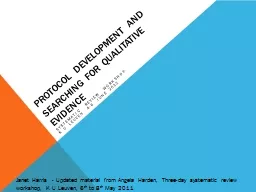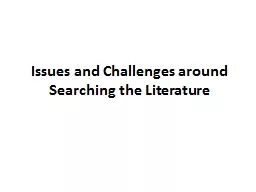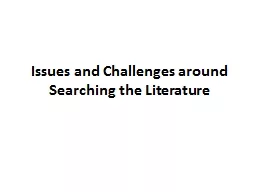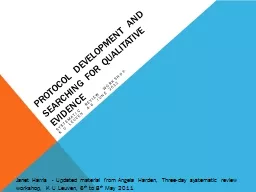PPT-Searching for What Matters Most 2019 Annual University of Wisconsin Oshkosh
Author : myesha-ticknor | Published Date : 2019-11-06
Searching for What Matters Most 2019 Annual University of Wisconsin Oshkosh Adult Student Recruitment and Retention Conference March 4 2019 Madison WI John N Gardner
Presentation Embed Code
Download Presentation
Download Presentation The PPT/PDF document "Searching for What Matters Most 2019 An..." is the property of its rightful owner. Permission is granted to download and print the materials on this website for personal, non-commercial use only, and to display it on your personal computer provided you do not modify the materials and that you retain all copyright notices contained in the materials. By downloading content from our website, you accept the terms of this agreement.
Searching for What Matters Most 2019 Annual University of Wisconsin Oshkosh: Transcript
Download Rules Of Document
"Searching for What Matters Most 2019 Annual University of Wisconsin Oshkosh"The content belongs to its owner. You may download and print it for personal use, without modification, and keep all copyright notices. By downloading, you agree to these terms.
Related Documents














